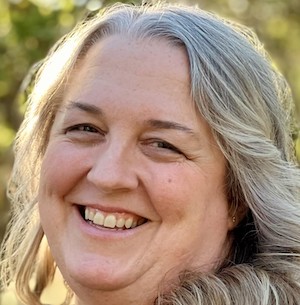
Written by Cher Arambel
In the heart of California’s Central Valley, where fertile farmland stretches for miles and wildlife habitats intersect with agricultural development, the Kings River Land Trust (KRLT) is on a mission to preserve both for future generations. Based in Reedley, KRLT has become a key player in the fight to protect some of the region’s most valuable resources: agricultural land and natural habitats that are rapidly being lost to urban expansion.
Formerly known as El Rio de los Reyes en Reedley Conservation Trust and founded in 1999, the nonprofit organization focuses on keeping agricultural land and wildlife habitats from being overtaken by development through the use of conservation easements. These legal agreements allow farmers and landowners to maintain ownership and productive use of their land while limiting future urban development. It’s a voluntary yet powerful way to ensure that land stays in agricultural use or remains a refuge for wildlife, even as surrounding areas face increased pressure for housing and commercial development.
“The Central Valley is where 60% of the nation’s fruits and nuts and over 30% of its vegetables are produced,” said Luke Hoekstra, executive director of Kings River Land Trust. “Our organization is working to make sure that our farmers and ranchers may continue to feed our country and the world by protecting the land where that food is grown.”
Saving farmland in a growing region
The Central Valley is known as the nation’s breadbasket, producing much of the country’s fruits, vegetables and nuts. Fresno County alone is the top agricultural county in the United States. However, rapid urbanization threatens to take over prime farmland as cities look to expand.
In this increasingly challenging environment, KRLT offers a lifeline to local farmers who want to preserve their land. By working with the organization, farmers place conservation easements on their property, which restricts the land from being sold for nonagricultural development. Instead, the land remains dedicated to farming, providing both a steady income for the owners and a guarantee that the land will be protected from encroaching urban sprawl.
“We’ve witnessed Fresno County’s farmland disappearing to development at an alarming rate,” said Hoekstra. “Our mission is to help local farmers safeguard their land while continuing to farm it, so we can preserve the agricultural productivity that is the backbone of this county’s economy.”
For many families who have farmed in the Central Valley for generations, conservation easements offer peace of mind. Not only can they continue their farming operations, but they also ensure that their legacy of stewardship is passed down to future generations. KRLT helps guide these landowners through the legal process, provides technical expertise, and even secures financial assistance to make these long-term conservation efforts possible.
The Central Valley is also home to diverse wildlife, including many species that rely on the Valley’s wetlands, rivers, and grasslands for survival. However, habitat loss due to development has put increasing pressure on these species, many of which are now threatened or endangered.
KRLT collaborates with landowners to conserve and restore critical wildlife habitats, from the riparian corridors along the Kings River to open grasslands that support migratory birds and endangered species like the San Joaquin kit fox. KRLT’s efforts are bridging the gap that often exists between agriculturalists and environmentalists.
“Conserving these habitats is crucial for maintaining biodiversity in Fresno County,” Hoekstra explained.
Looking ahead
As urban pressures continue to grow in the Central Valley, Kings River Land Trust’s work has never been more critical. The organization is determined to keep the Central Valley’s agricultural and natural heritage intact, ensuring that future generations can benefit from the region’s rich resources.
“Our goal is to leave a lasting legacy,” said Hoekstra. “We want to expand our efforts so that 50 years from now, people can look back and see that the land we protected is still being farmed and wildlife is still thriving across the region.”
For Kings River Land Trust, the future is about finding more ways to protect the land, one conservation easement at a time. To contact Kings River Land Trust, or to learn more about our organization, please visit our website at kingsriverlandtrust.org.
Cher Arambel is director of outreach and development for Kings River Land Trust. She’s been working in nonprofit development for more than 5 years after leaving journalism, where she worked for various newspapers for more than 20 years.








